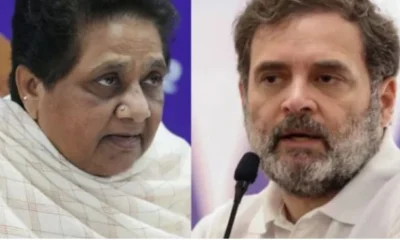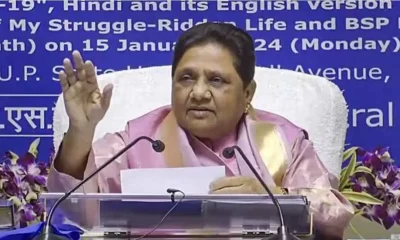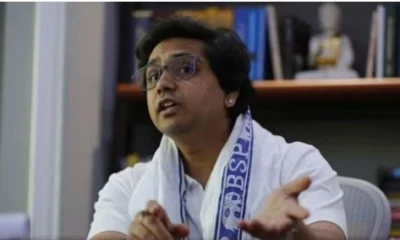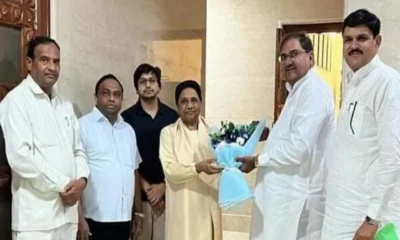[vc_row][vc_column][vc_column_text]Mayawati in the line of fire after defeat in Uttar Pradesh assembly elections
By Nora Chopra
Bahujan Samaj Party supremo Mayawati is facing the most crucial challenge of her political life. Her style of functioning is under the scanner and the party is heading for a split in the aftermath of the UP assembly results.
Resentment is brewing within the BSP against the working style of Mayawati, who has done nothing to review, or introspect over, the performance of the party in the recently concluded elections. She has invited the wrath of the party’s rank and file for not taking action against those responsible for the defeat.
The cadre is demoralised after the third consecutive defeat of the party, first in the 2012 assembly elections, 2014 Lok Sabha polls and now in the 2017 assembly elections.
BSP leaders and workers allege that Mayawati has compromised with the upper castes, particularly the Brahmin community. Mayawati may not have aligned with the BJP in this assembly elections but she has been playing into the hands of Prime Minister Narendra Modi and that of the BJP.
Party workers are alleging that Mayawati has abandoned the BSP ideology, the basis on which Kanshiram had built the party. “ Vote hamara (dalit ka) raj tumhara (upper castes) nahin chalega nahin chalega. Tilak taraazu aur talwar inko maron jootein char.” Tilak referred to Brahmins , taraazu to the Bania community and talwar to Rajputs. These were the two slogans on which Kanshiram had built the BSP.
But by aligning with the Brahmin community she has overturned the ideology. Satish Mishra, her most trusted lieutenant and the most well known Brahmin face of the BSP comes from a Rashtriya Swayamsevak Sangh (RSS) background. His father was closely associated with the RSS.
Mishra was instrumental in negotiating the BJP-BSP alliance in 1995 when she became the chief minister for the first time with support of the BJP.
Senior leaders close to Kanshiram claim that it was then that the drift started, and she had moved away from Kanshiram’s “bahujan samaj” ideology to her own “sarva samaj”.
Kanshiram’s “bahujan samaj” ideology was meant for the growth and empowerment of the Dalit, Most Backward Classes (MBCs) and Muslims. Mayawati had totally ignored MBCs like the Kushwahas, Sainis, Patels, Nishads, and even the Balmiki and Paasi Dalits etc .
Even her decision of giving 100 plus tickets to Muslims in the just-concluded assembly elections is also under fire. The criticism is that she gave these tickets to basically upper caste Muslims and it was done only to divide the Muslim vote, giving the BJP a walkover. The 100 plus tickets given to Muslims had even led to communal polarisation and thus to consolidation of the Hindu majority. She has indirectly helped the BJP by doing so.
Discontent against Mayawati began in 2014 when she left the entire Dalit space to Narendra Modi and did not put up a single candidate
The party’s senior Dalit leader, Kamla Kant Gautam has announced a public meeting in Lucknow on April 13 on the eve of BR Ambedkar’s birth anniversary to announce a new outfit to save the “bahujan samaj”.
Gautam is expecting about 10, 000 Dalit, MBC workers to be at the rally. Already many of the workers and leaders have announced their resignations in Allahabad, Kanpur and Lucknow.[/vc_column_text][/vc_column][/vc_row]
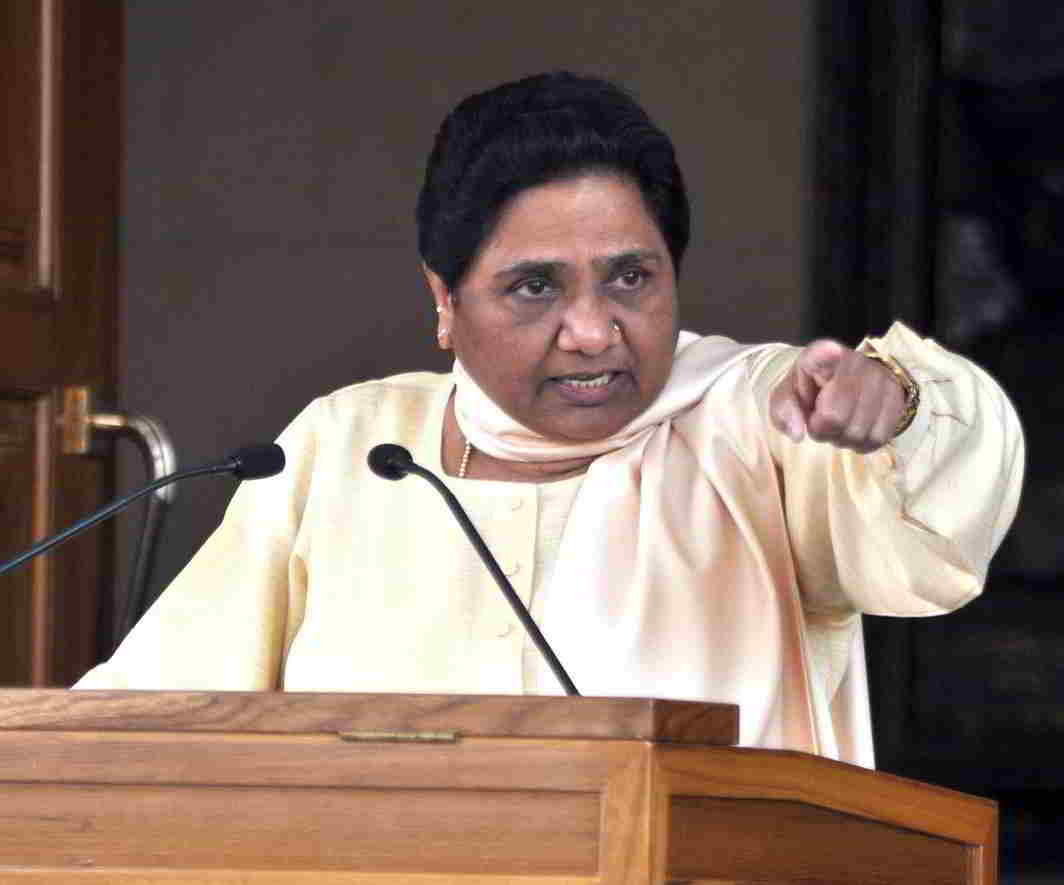

 India News4 hours ago
India News4 hours ago
 India News5 hours ago
India News5 hours ago
 LATEST SPORTS NEWS4 hours ago
LATEST SPORTS NEWS4 hours ago
 India News4 hours ago
India News4 hours ago
